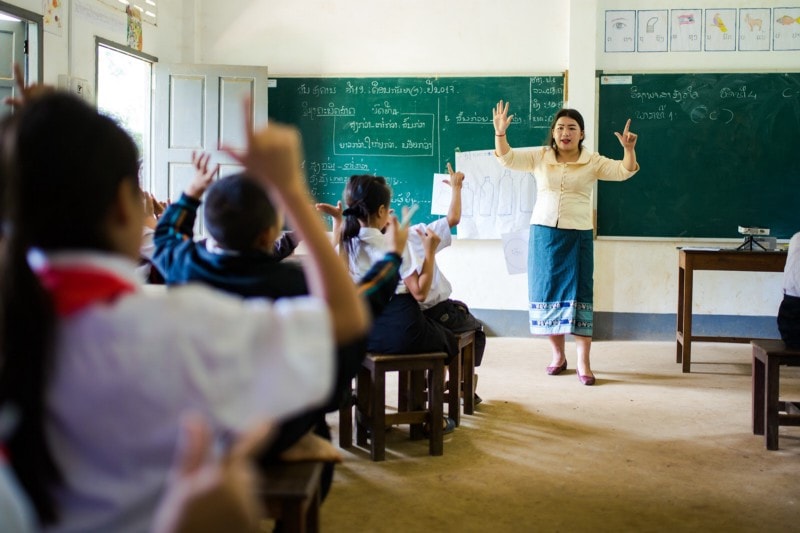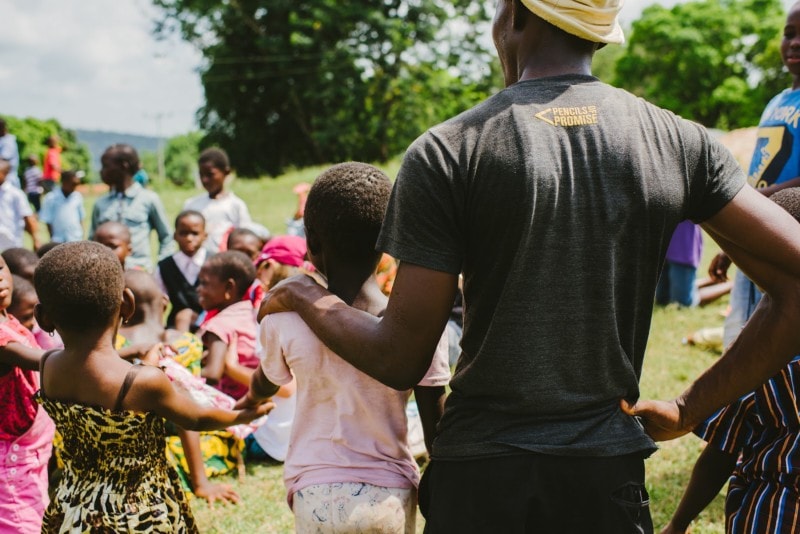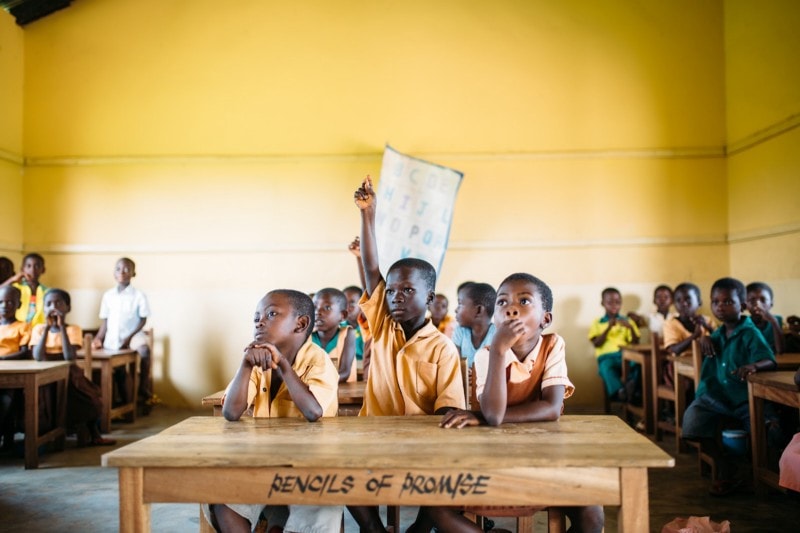A message I received last December during a text exchange with our Programs Manager in Ghana: “I think it would be best if we stopped the program.”
In this specific text message, she was recommending that we stop a program called SOLE (Self-Organized Learning Environments), where teachers pose questions to students, who then use tablets to search the Internet for answers. I knew that we had data showing that students’ literacy scores improved when SOLE was being implemented at schools, and students seemed to enjoy lessons using the tablets. Why, then, was it recommended that we stop the program? It was my job to find out.
As the Impact Manager, Delivery & Compliance, my day consists almost entirely of speaking, emailing or texting with in-country staff. That could mean a 7am call with our Lao Co-Country Director to discuss the WASH budget, or 9pm texts from our Guatemalan team letting me know that an imminent teachers’ strike could affect workshop attendance. My role is to learn the challenges each team in each country faces, and then work to find solutions.
If you know our organization’s structure, you’re aware that we’re headquartered in New York City with separate country offices in Ghana, Guatemala and Laos. Each of our country offices have teams focused on things like Teacher Support, WASH, Builds and Learning & Evaluation. For many organizations structured this way, decisions come from the headquarters and in-country teams simply implement the decisions that are made. For PoP, however, that’s not the case.
Question Overload
Our country teams are the leaders in all strategic programmatic decisions that we make. We value their opinions more than we value our own: they’ve grown up in each of the countries we support and, therefore, likely know what’s the best path forward. When I spend time in each country, I’m mainly asking questions, questions, and more questions. “What do you think needs to be improved? Why has this been a challenge? What do you think is the solution? What if we tried this? What should our next steps be?”
Because our teams are experts of their own cultures, they’re able to tell us what could work with their students or what interventions teachers might dislike. Our teams have spent endless hours building unique relationships with each individual teacher, seeing their successes and hearing about their challenges, so it’s imperative those staff members are deeply involved in the decisions being made. I can offer a number of suggestions, but in the end, they’re best positioned to judge if and how the suggestion would be effective with the teachers that they support week in and week out.
Often, the solution to a problem is found through close discussion between New York and in-country teams, but the end decision is really guided by questions like, “What is best for Laos?” or “Would the Ghanaian government support that initiative?” The answers to these questions are essential for making sound and sustainable decisions. It doesn’t mean we always get it right, but we position ourselves best when we start with the ideas and opinions of our in-country teams. They’re on the ground working with teachers and students every day. If we, as the New York team, assumed that we knew best, we would be doing a disservice to the communities we support.
What about SOLE?
When I received the text message recommending we should end the SOLE program, I thought back to conversations we’d had in the past. There had been a few discussions about whether our team had to devote too much time to the program, compared to the time we spent preparing for workshops or other Teacher Support activities. Although SOLE was only in two schools, it took many hours to train teachers on the student-centered approach. I also reminded myself that the program’s success relied on a strong Internet connection and that the connection was provided through mobile Wi-Fi hotspots. Students couldn’t search for answers without this connection.
With that knowledge, I began asking questions. I soon learned that the Internet connection available in our communities was weak at best and, in the past few months, had not been working at all. Instead of teachers utilizing the 30 minute class period to introduce the solar system or best practices in agriculture by having students search the web for answers, precious class time was spent clicking the refresh button on their tablets in hopes of a better signal.
Moving forward
Knowing the Internet issues, and the prior conversations about our staff’s time, we made the quick decision to halt the SOLE program.
It’s not to say the program would not be carried out in the future, but for now, knowing our team’s capacity and time, we hit pause. If and when we want to direct more resources to the program, we can revisit it. For the next year, at least, we’ll remain laser-focused on improving the core parts of our Teacher Support program: coaching sessions, workshops and book access. While a program based around student-centered learning and Internet browsing may be a brilliant approach to teaching in general, it’s not currently a great fit for our specific program contexts and staff capacity.
We’re constantly looking for the best solutions for the students and teachers that we support. While our organization pushes to provide high-quality literacy education, our country teams lead the way with firsthand knowledge of their cultures, governments and communities in which we work. We believe that pausing the SOLE program is the best answer for the short-term, and our confidence stems from the fact that the decision to do so was led and informed by the people who saw the challenges firsthand. Our in-country teams are the implementers, the information gatherers and the innovators that are the core to our success, so whether I’m receiving 7am calls or 9pm texts, I’m ready to listen.
. . .
About the author:
KC Baker is a passionate educator who has been teaching and developing Teacher Support programs since 2003. She has experience with students ranging in age from kindergarten to adults across sub-Saharan Africa and the United States, including developing a teacher training program for Kakuma Refugee Camp in Kenya and a Peace Corps Response teaching post in Sierra Leone. KC has a B.S. in Elementary Education from The Pennsylvania State University and an M.A. in International Educational Development from Teachers College, Columbia University. KC became the Impact Manager, Delivery & Compliance at PoP in February 2017.



